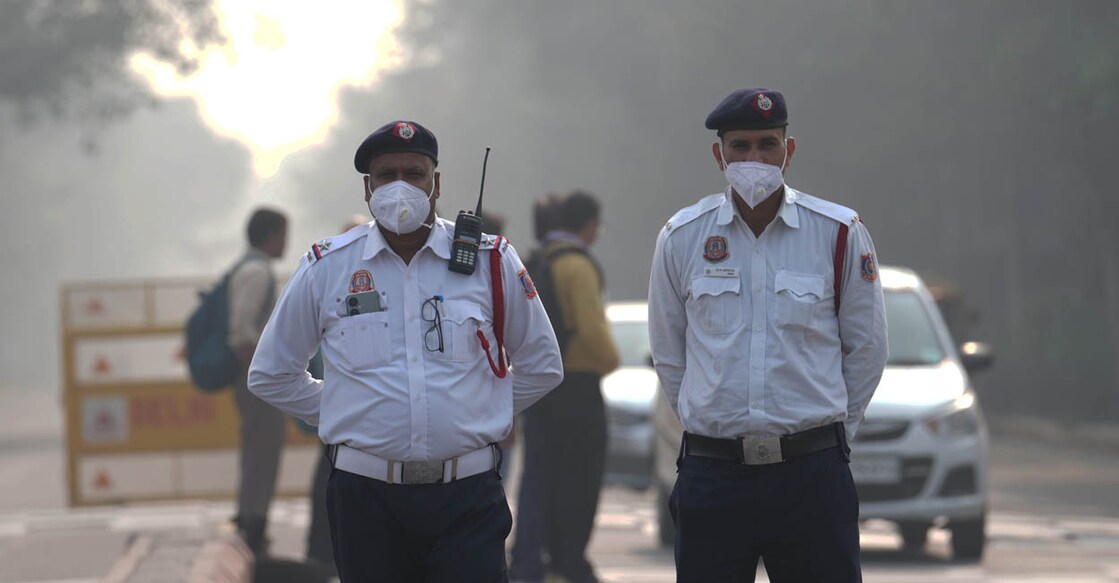Delhi's air quality 'severe' again; IMD predicts brief relief from next week

Mail This Article
New Delhi: Air quality in Delhi turned 'severe' again on Friday with a dip in temperatures and slow wind speed at night allowing accumulation of pollutants. The city's air quality index (AQI) that stood at 401 at 8 am had worsened to 415 by 4 pm.
A scientist at the India Meteorological Department (IMD) predicted a brief relief due to a likely improvement in meteorological conditions under the influence of a western disturbance expected to affect northwest India starting November 27. Delhi has been witnessing a gradual increase in AQI levels after a marginal improvement on Sunday.
The 24-hour average AQI, recorded at 4 pm every day, was 390 on Thursday, 394 on Wednesday, 365 on Tuesday, 348 on Monday and 301 on Sunday. The rise in the AQI levels comes after the Centre on Saturday removed stringent curbs, including a ban on construction work related to linear projects and the entry of polluting trucks in Delhi, following a drop in pollution levels due to a favourable wind speed and direction.
Neighbouring Ghaziabad (401), Gurugram (335), Greater Noida (365), Noida (367) and Faridabad (415) also recorded 'very poor' to 'severe' air quality. An AQI between zero and 50 is considered 'good', 51 and 100 'satisfactory', 101 and 200 'moderate', 201 and 300 'poor' , 301 and 400 'very poor', 401 and 450 'severe' and above 450 'severe-plus'.
According to the air quality early warning system developed by the Pune-based Indian Institute of Tropical Meteorology, pollution levels are likely to oscillate in the 'very poor' to 'severe' categories in the next few days. Data from a joint project by the Delhi government and the Indian Institute of Technology (IIT), Kanpur, revealed that vehicular emissions accounted for about 38 per cent of the capital's air pollution on Thursday.
Secondary inorganic aerosols- particles such as sulfate and nitrate that are formed in the atmosphere due to the interaction of gases and particulate pollutants from sources like power plants, refineries and vehicles- are the second major contributor to Delhi's foul air, accounting for 25 to 35 per cent of the air pollution in the city over the last few days. Biomass burning, including post-harvest paddy straw burning in neighbouring states, contributed 21 per cent to the capital's air pollution the previous day.

